Randy Alcorn's Blog, page 199
April 17, 2013
Why the Revelations of Dr. Gosnell’s Trial Don’t Shock Me, and the Holocaust in Our Midst
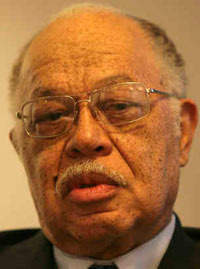 A few years ago I wrote a blog about the murder charges against Dr. Kermit Gosnell, the Philadelphia abortionist. He’s back in the news (well, some of the news) because of his trial.
A few years ago I wrote a blog about the murder charges against Dr. Kermit Gosnell, the Philadelphia abortionist. He’s back in the news (well, some of the news) because of his trial.
Last Friday the EPM staff reposted on my Facebook some of my original comments. That post has had an incredible reach, with over 1,300 shares, more than 1,100 likes and nearly 200 comments. Facebook also tells me that over 170,000 people have seen the post.
(You might want to check out Trevin Wax’s article on 8 Reasons for the Media Blackout on Kermit Gosnell where he speaks of “the strange silence of the mainstream media regarding one of the most gruesome murder trials in American history.”)
I’m grateful for the way God is really touching lives through the work our staff does—in this case raising consciousness for the plight of the unborn. I’m including my Facebook post below for those of you who may not have seen it, and am adding a few additional comments.
I must say that while I agree with all the Christian bloggers and tweeters that the revelations in the Dr. Gosnell case are all horrific, in fact I am not shocked about them. Why? Because I already knew what was going on in abortion clinics. I already knew that innocent people are killed there by the hundreds every week. Twenty-four years ago I looked in the dumpster of an abortion clinic and saw pieces of human flesh. This is not news to me. I knew that the lives of women are ruined there, and I knew that the “doctors” who spend their lives killing babies in most cases know exactly what they are doing. (Yes, I have talked with them.)
 I’m a little taken aback that so many Christians are utterly shocked only because of the fact that this man killed some babies after they were born instead of a minute, week, month or three months earlier. As if that makes the slightest difference to the babies or to God. (I’m not talking about the legal differences, I’m talking about moral and human rights differences.)
I’m a little taken aback that so many Christians are utterly shocked only because of the fact that this man killed some babies after they were born instead of a minute, week, month or three months earlier. As if that makes the slightest difference to the babies or to God. (I’m not talking about the legal differences, I’m talking about moral and human rights differences.)
The “shocking discovery” that an abortionist who made millions of dollars from child-killing had such a low regard and such a profound disrespect for the lives of babies and women is properly responded to with a “Huh?” As in, didn’t we know that already? And, if we didn’t, what is wrong with us? (And by the way, while Gosnell is on trial for the murder of seven babies, the fact is that he killed thousands and thousands of children. Anyone who only counts them as babies once they get big enough is an accomplice to this man’s evil deeds.)
Could we please stop pretending? Abortion is in fact the ruthless killing of an innocent human being. That’s what it always has been, and that’s what it always will be. When Planned Parenthood and NOW and politicians deny this, they are simply lying. There is nothing new about this. If you are surprised to discover, as in the case of this Pennsylvanian abortion clinic, that those who kill babies for a living are really not very good people, my question is…where have you been, and what have you been thinking goes on in these clinics? And if some abortionists are better at sanitizing the walls and disposing of baby body parts, do you really think that makes them any better in the sight of God Almighty, Creator of these children, and Judge of us all?
Unborn children in America are our equivalent of Jews in Germany seventy years ago. The church’s indifference to them, and failure to stand up in their defense, is a shame of huge proportions. Self-righteously we decry the German church’s failure to stand up for the Jews. Meanwhile we fail to stand up for the unborn. We shake our heads in disgust at the German church’s tolerance of one holocaust while ignoring our own tolerance of another. It is always far easier to see the bloodshed of another country of another time and wonder why the Christians didn’t stand up, than it is to see the atrocities of one’s own place and time, where we are failing to stand up.
If you’d like to do more reading about how to engage people in conversation about the issue of abortion, check out my books Why ProLife? and ProLife Answers to ProChoice Arguments. (See the end of this blog for a special offer from EPM.)
Finally, someone asked me on Facebook, and others of you might be wondering: what should our attitude and response be toward Dr. Gosnell and all those involved in his clinic? I personally know and have spoken at length with three people who used to be in the abortion business who came under the Holy Spirit’s conviction, turned to Christ, and walked away forever from their abortion-funded paychecks. One was an abortion clinic owner, another a physician who did abortions, and the other was a full-time counselor and intake person at an abortion clinic. Each of them is a wonderful person. God can and does sometimes lift the veil of blindness as He must do for each of us related to our own sins. So prayer is the right response—prayer of God’s just judgment upon the unrepentant, yes, but prayer first for their repentance.
When we stand before God, will any of us be able to plead ignorance? Will we have an excuse for what we have done to unborn children, and what we have not done to save their lives?
Rescue those who are being taken away to death;
hold back those who are stumbling to the slaughter.
If you say, “Behold, we did not know this,”
does not he who weighs the heart perceive it?
Does not he who keeps watch over your soul know it,
and will he not repay man according to his work? (Proverbs 24:11-12)
There is plenty of judgment to go around. May God be merciful to us all, for we all have much to account for when it comes to the slaughter of innocent children.
As for changing the way we think, for starters, could we stop being shocked only when babies are “aborted” an hour after they are born? Could we start being shocked when the same children—with the same beating hearts, measurable brainwaves and preprogrammed DNA—are aborted an hour, month or seven months before they’re born? What, in the eyes of God Almighty, is the difference?

From Eternal Perspective Ministries
For a limited time, get Why ProLife? for just $1.00 a copy, plus S & H. (retail $6.95, everyday low EPM price for single copies $3.00). No code and no minimum or maximum order amount needed to get the discount.
This updated and revised edition of Randy’s book offers factual answers to the central issues of the abortion debate in a concise, non-abrasive way. Infused with grace and compassion, and grounded in medical science and psychological studies, this book is an encouragement to be intelligently and graciously informed.
Sale price good through April 24.
April 15, 2013
Meet 100-Year-Old Walter Jespersen, a Man of God
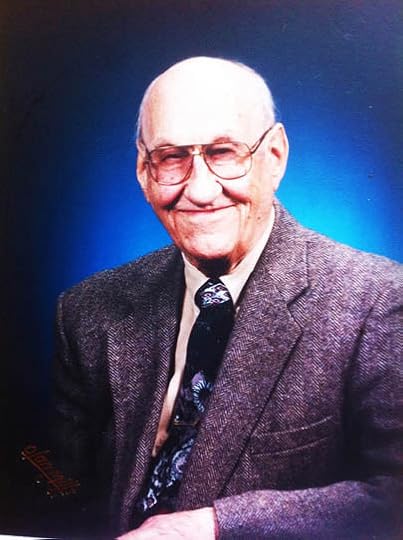 I will never forget spending an afternoon in September 2001 with Walter Jespersen, at the home of Doug and Margaret Nichols. Walter, Margaret’s father, was 88 then, and now is 100 years old. His graciousness, cheerfulness and humble spirit made a deep impression on me. We spoke about China and his days serving there, first as a single man in the 1930’s. I remember thinking, “This is a man I want to grow up to be.”
I will never forget spending an afternoon in September 2001 with Walter Jespersen, at the home of Doug and Margaret Nichols. Walter, Margaret’s father, was 88 then, and now is 100 years old. His graciousness, cheerfulness and humble spirit made a deep impression on me. We spoke about China and his days serving there, first as a single man in the 1930’s. I remember thinking, “This is a man I want to grow up to be.”
Here are two ways you can get to know a man truly worth knowing, and in the process get to know his God:
1) Read a blog about Walter.
2) Watch an interview from five years ago when then 95-year-old Walt talks about many things, including going to China as a 23-year-old missionary in the 1936. This is a wonderful ten minutes, and in it you see Walt’s smile and hear his laughter. After watching it, you’ll know why my friend Doug Nichols, founder of the great missions group Action International, always speaks so highly of his father-in-law, who he calls “Dad Jespersen.” After watching this video I decided I still want to grow up to be Walter Jespersen.

EPM's Related Resources
Book: Courageous
Resource: Leaving a Legacy of Faithfulness: the Father as Model and Mentor
Blog: Some of my Spiritual Heroes—who are yours?
April 12, 2013
The Gift of God-Honoring Laughter
“For everything there is a season, and a time to for every matter under heaven…a time to weep and a time to laugh; a time to mourn and a time to dance” (Ecclesiastes 3:1, 4).
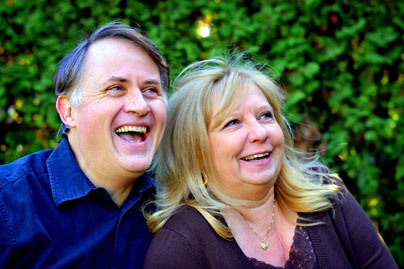 Nanci and I laugh together every day, often hilariously. Sometimes we can’t stop. When our now-grown girls were young, there was always a lot of giggling and laughing and carrying on at the dinner table, and Nanci and I were in the thick of it. When we’re with our grandsons, we’re always looking for the next laugh. Not laughter at another’s expense, though there’s lots of good natured kidding, but the kind of laughter that draws people together. The friendships we enjoy most, like with our friends Steve and Sue Keels, are the ones where we really laugh together. Those kinds of friendships are worth seeking out and preserving.
Nanci and I laugh together every day, often hilariously. Sometimes we can’t stop. When our now-grown girls were young, there was always a lot of giggling and laughing and carrying on at the dinner table, and Nanci and I were in the thick of it. When we’re with our grandsons, we’re always looking for the next laugh. Not laughter at another’s expense, though there’s lots of good natured kidding, but the kind of laughter that draws people together. The friendships we enjoy most, like with our friends Steve and Sue Keels, are the ones where we really laugh together. Those kinds of friendships are worth seeking out and preserving.
Norman Cousins gives an amazing account of laughter’s therapeutic value in his book Anatomy of an Illness. Diagnosed with an untreatable terminal disease, Cousins determined to cultivate a positive frame of mind. Part of that came from watching old Marx Brothers movies and reruns of Candid Camera. Eventually his disease subsided, his health returned, and Cousins is convinced it was his laughter and sustained focus on the bright side that brought about his healing.
Martin Luther said, “You have as much laughter as you have faith.” We’ve found that the ability to be lighthearted helps us work through many heavy and difficult situations without burning out or losing our perspective. Humor is our release, our safety valve. Laughter relieves tension and breaks down barriers. Laughter is therapeutic. It is medicinal. It heals. It gives hope.
 “A cheerful heart is good medicine, but a crushed spirit dries up the bones” (Proverbs 17:22).
“A cheerful heart is good medicine, but a crushed spirit dries up the bones” (Proverbs 17:22).
“A glad heart makes a cheerful face, but by sorrow of heart the spirit is crushed” (Proverbs 15:13).
When it comes to laughter, we love listening to Brian Regan, our favorite comedian. Several years ago on Nanci's birthday we went to Portland to hear him live. Nanci heard him live another time with one of our daughters. We love Brian’s humor, and he keeps it clean, which is refreshing. (The reason we don't watch most other-wise funny comedians is that to laugh at what dishonors God is to dishonor God).
Nanci and I have three Brian Regan DVDs we have watched and rewatched with family and friends: Standing Up, The Epitome of Hyperbole and I Walked on the Moon.
If you want a sample, here’s one of many clips of Brian Regan we enjoy:

EPM's Related Resources
Product: Help for Women Under Stress gift package
Audio: Does Satan lie to us about Heaven?
Blog: Laughter in Heaven (plus Brian Regan video)
Photo credit: brianregan.com
April 10, 2013
Is Sincerity Enough?
I received this question: “A lot of people have sincere beliefs that contradict God’s Word. Does sincerity count for anything?” In the video and the following transcript, I share some thoughts in response:
I think sincerity certainly does count for something. But I also believe it counts for less than we think it does. In a hospital, there are situations where a doctor or nurse injects a medication sincerely believing it will bring healing that ends up being fatal. Certainly we would all feel worse if we found out that they were not sincere and were actually trying to kill their patient. But the fact they were sincere is not a great consolation when you realize the consequences.
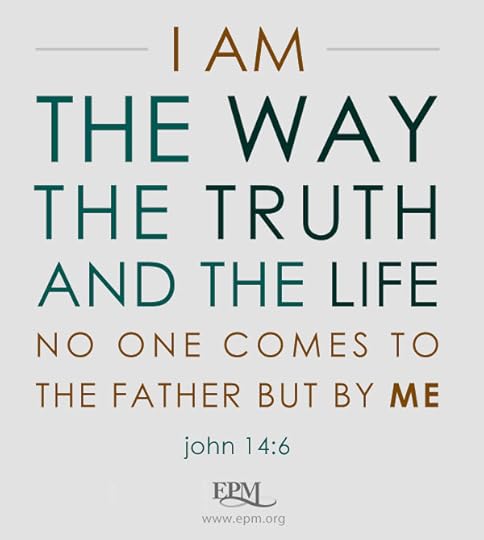 The same is true when it comes to Scripture. There are sincere people, for instance, who don’t believe that Jesus is the only way to Heaven. I know there’s people who sincerely believe that. But what did Jesus say? “I am the way, the truth and the life. No one comes to the Father but by me” (John 14:6). We’re told in Acts 4:12 that neither is there any other name under Heaven given among men whereby we must be saved. We must come into a relationship with Christ to spend eternity with Him.
The same is true when it comes to Scripture. There are sincere people, for instance, who don’t believe that Jesus is the only way to Heaven. I know there’s people who sincerely believe that. But what did Jesus say? “I am the way, the truth and the life. No one comes to the Father but by me” (John 14:6). We’re told in Acts 4:12 that neither is there any other name under Heaven given among men whereby we must be saved. We must come into a relationship with Christ to spend eternity with Him.
So a person can be very sincere and not believe in that objective truth. But will their sincerity keep them from experiencing the consequences of not believing in and trusting in Christ? This is where I think we need to realize that by all means we should be encouraging and tolerant (in the right sense) of people’s different viewpoints—but in the end, let’s not apologize for what Jesus actually said. We shouldn’t minimize it by saying, “Well, the important thing is that people are sincere.” Well, it is important whether or not people are sincere. But in the end, it’s also extremely important whether they are right and believe what is true.

Related Resources
Book: The Grace and Truth Paradox
Resource: A Tenuous Hope Versus a Certain Truth
Blog: Speaking the Truth in Love
April 8, 2013
Watch the first full session from my Eternity 101 DVD set
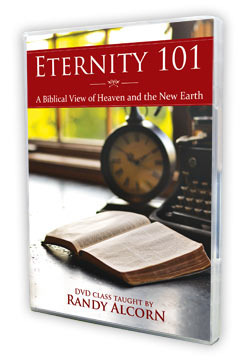 I really enjoyed teaching a 12-hour course on Heaven and the New Earth at Corban University last spring. We had it filmed with the goal of providing an affordable DVD set people can use for personal study, or in their churches, classes or small groups.
I really enjoyed teaching a 12-hour course on Heaven and the New Earth at Corban University last spring. We had it filmed with the goal of providing an affordable DVD set people can use for personal study, or in their churches, classes or small groups.
If you’re interested in the whole 55-minute Eternity 101 session one, skip to the third and last video below and jump right in (the first two videos are from that same session).
If you’re interested in a 4.5 minute sample from the class, here’s a clip where I share from Revelation 1 about the apostle John seeing the glorified Jesus in Heaven:
In this 2.5 minute clip, I share about Heaven from 2 Corinthians 5 and Colossians 3, and talk about not living in the dot, but living for the line:
Here’s the entire video of session 1 of 12. If you enjoy it, and want to go through it yourself, or with a class or small group, you can order the whole 6-DVD set from EPM at www.epm.org/eternity101. (We also offer free class resources, including a study guide with leader’s guide and an inductive study.)

Related Resources
DVD Set: Eternity 101
Resource: Eternity 101 DVD Class Resources
Blog: Heavenly Minded and of Earthly Good
From Eternal Perspective MinistriesEternity 101 DVD Class - $12
Bring eternity to light... in a way that will change how you live today!
For many people—including many Christians—“Heaven” is a mysterious word describing a place that we can’t understand and therefore don’t look forward to. But Scripture tells us differently. What we otherwise could not have known about Heaven, God says he has revealed to us through his Spirit.
God tells us about our eternal home in his Word, not so we can shrug our shoulders and remain ignorant, but because he wants us to understand and anticipate what awaits us and those we love.
List price - $19.99
Sale price good through Thursday, April 11
April 5, 2013
A Terrific New Bible Study Series for Churches and Groups

One of my favorite bloggers is Justin Taylor, a brother who I know and deeply appreciate. Justin is constantly introducing me to great people, material and developments. If you want to keep up daily with a variety of interesting developments and books and resources in theology and the church, I can’t recommend more highly his blog.
Recently, Justin talked about a new Bible study series from Crossway Publishers. First, listen to this excellent 2.5 minute video in which Dane Ortlund describes this exciting project:
Then, read what Justin has to say about these Bible studies below:
Not Your Mother’s Bible Study Guides
I’m excited about Crossway’s new 12-week Bible study guides—for groups, classes, or individuals—called Knowing the Bible. It tries to bring together gospel-centered biblical theological, sound doctrine, and legitimate application in a faithful and accessible way, under the editorship of J. I. Packer.

Related Resources
DVD Set: Eternity 101
Blog: ESV Study Bible
Audio: Handling the Word
April 3, 2013
Remembering Edith Schaeffer
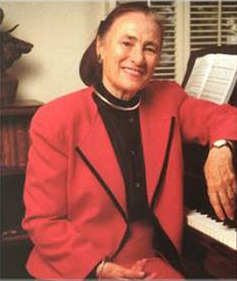 Edith Schaeffer was a Christ-loving, creative, caring, and classy woman. She entered the presence of Jesus this past weekend, at age 98. (See also this post from Tim Challies, with thoughts from his mom about the time she spent with Edith.)
Edith Schaeffer was a Christ-loving, creative, caring, and classy woman. She entered the presence of Jesus this past weekend, at age 98. (See also this post from Tim Challies, with thoughts from his mom about the time she spent with Edith.)
I had a wonderful time talking with Edith on an airplane 25 years ago. I told her how her husband Francis Schaeffer had a profound impact on me as a young Christian. I also shared how I had written him a long letter as a college student, and was very touched that he’d taken the time to respond to me. (I wrote about this in a 2009 blog, Francis Schaeffer: Intellectual and Christ-Lover.)
 I read and enjoyed every book written by Francis Schaeffer and I read Edith’s books as well, notably The Hidden Art of Homemaking, What is a Family? and L’Abri.
I read and enjoyed every book written by Francis Schaeffer and I read Edith’s books as well, notably The Hidden Art of Homemaking, What is a Family? and L’Abri.
Edith, I will never forget you, and our delightful conversation. I am delighted that you are with our Lord and Savior, and that you have been reunited with your beloved husband Francis. God used both of you in my life, and I look forward to seeing you again in the presence of our King.

Related Resources
Book: Tell Me About Heaven
Blog: Francis Schaeffer: Intellectual and Christ-Lover
Video: Who are some of the Christians that have most influenced your life?
April 1, 2013
Popularity vs. Pleasing God
In this video and the following transcript, I share some thoughts:
In Galatians 1:10 Paul says, “Am I now trying to win the approval of men or of God? Or am I trying to please men? If I were still trying to please men, I would not be a servant of Christ.” Paul makes it clear that God is the One we’re supposed to please. God has made man for Himself, and we are to live lives that are pleasing to Him and that bring Him glory.
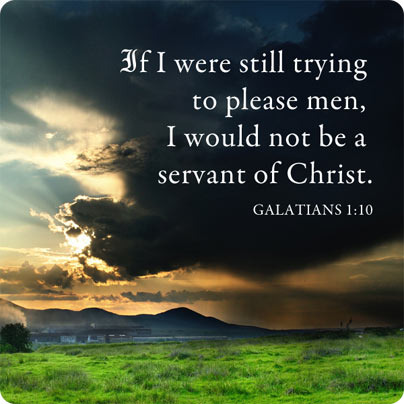 If we’re too preoccupied with the world and what people are thinking of us, then we’re liable to compromise the Gospel. That’s what Galatians 1 is talking about—what the Gospel is. If we’re trying to please people through our sharing of the Gospel, then we’re going to end up revising God’s message and taking out the parts about sin and hell. What we’ll be left with is not the Gospel.
If we’re too preoccupied with the world and what people are thinking of us, then we’re liable to compromise the Gospel. That’s what Galatians 1 is talking about—what the Gospel is. If we’re trying to please people through our sharing of the Gospel, then we’re going to end up revising God’s message and taking out the parts about sin and hell. What we’ll be left with is not the Gospel.
At the same time, Paul says in Romans 15 that we should live in such a way as to accept one another as Christ has accepted us. We’re to bear with one another. Then he says, “Let each of us please his neighbor for his good, to build him up” (v. 2). So we are supposed to please other people for their good—when it actually builds them up spiritually.
So when is it okay to please people, and when is it not okay to please people? We can please people when it’s for their ultimate good, but still is faithful to the Lord and His Word. But we should not try to please people when it means not pleasing God and compromising His truth.

Related Resources
Book: Courageous
Blog: Does the Word "Evangelical" Mean Anything Anymore?
Resource: How do you deal with being told you are judgmental for speaking out against abortion?
Stock photo credit: boogy_man via sxc.hu
March 29, 2013
Excellence or Faithfulness?
In our book Help for Women Under Stress, Nanci and I share about a friend named “Andrea,” who lamented to us that “Too many people have a piece of me. I can’t give them what I don’t have, and I just don’t have anything left.”
Andrea was experiencing job saturation. She was totally devoted to motherhood, the church, social action, and every good cause imaginable. In her case it stemmed from unrealistic expectations. Andrea was the type of woman who could be told, “Rome wasn’t built in a day,” and would respond, “That’s because I wasn’t in charge of the project.”
We assured Andrea she didn’t have to try to be what she wasn’t—the fourth member of the trinity or vice-president in charge of the galaxy. She didn’t have to save the whole world because that was Jesus’ job, not hers. Her family would still love her even if she didn’t win a Nobel Prize this year.
Many people say to themselves, “I must do everything well.” For women, the implication of this belief is often that they must be the world’s best mother, a gourmet cook, the perfect hostess, have a spotless home, and be a ravishing beauty queen. Realistically this is just not possible. If you know someone who seems to be all these things, she’s probably going to counseling, saying, “I can’t take it anymore.”
We have a confession to make—we’re sick and tired of hearing so much about the importance of excellence in all things. While we’re all for excellence, and all of us should strive for it in some areas, it is impossible for any of us to be excellent in everything. Pretending we can be or should be just sets us up for the crash—and a whole lot of stress.
 I’m not a great biker, and never will be, but that doesn’t mean I have no business biking. I am a poor ice skater, but I still went ice skating with our family and had a blast (the fact that I was so bad was half the fun). Like you, Nanci and I can each do a few things with excellence, but it would lay an unbearable weight on us if we thought we had to be excellent in everything.
I’m not a great biker, and never will be, but that doesn’t mean I have no business biking. I am a poor ice skater, but I still went ice skating with our family and had a blast (the fact that I was so bad was half the fun). Like you, Nanci and I can each do a few things with excellence, but it would lay an unbearable weight on us if we thought we had to be excellent in everything.
Christ has called us not to excellence in all things but to faithfulness in all things. “Now it is required that those who have been given a trust must prove faithful” (1 Corinthians 4:2). Every man I know would much rather be married to a faithful woman who’s a fair cook, a competent housekeeper, a good mom, and a decent wife than a woman whose devotion to excellence in all things leaves her strung-out, uptight, and intolerant of herself and her family.
So while you’re doing a few excellent things today, relax and do some strictly average ones, maybe even a few below average. In fact, why don’t you find something you do poorly, and do it with gusto. It will do your heart good!

Related Resources
Book: Help for Women Under Stress
Blog: Laughter in Heaven
Resource: Can't You See That I'm Busy?
Photo credit: LotusHead via sxc.hu
March 27, 2013
God Reveals Himself in His Creation
I recently read Steve DeWitt’s Eyes Wide Open: Enjoying God In Everything. I love the title, and I love the book. Here’s one of many things I enjoyed from the book, and we’ve added some photos and video to help you appreciate what he’s talking about.
Iguazu Falls. Itai
pu Dam.
Ever hear of them? Probably not, unless you stay updated on the “Wonders of the World” lists. The Iguazu Falls are located on the border between Brazil and Argentina and are on every list of natural wonders of the world. The word iguazu means “big water.” This is a colossal understatement. The Iguazu Falls contain 275 waterfalls along a mile and a half of the Iguazu River. They are stunning. Imagine seeing and hearing 20 Niagara Falls at once. Every second 400,000 gallons of water leap over the edge, sending mist 500 feet into the air. If you stand next to the falls, you feel like you are waterskiing behind a jet. Amazing. The Iguazu Falls provide an overwhelming experience.
Less than a thirty minute drive away from the falls is the Itaipu Dam. It’s not likely on your travel destination hot list, but it ought to be. Itaipu Dam is the largest operational power plant in the world. It holds back the flowing power of the Paraná River on the border of Paraguay and Brazil. Rising sixty-five stories high, the amount of concrete in the dam would build a highway from Brazil to New York City. To see the scope and breadth of the Itaipu Dam is to wholeheartedly agree with its place on many lists of the seven man-made wonders of the world. Wow.
When you stand and look in awe at the size and scale and design of the dam, do you know what you don’t think? Nobody has ever stood there and thought, What a coincidence! Who would have thought that nature would produce a power plant like this? What are the chances? Instead, you think, Who did this? What brilliant minds were behind the creation of this wonder? Who could possibly pull this off?
If you flew the five minutes it would take to get from Itaipu to Iguazu, what would strike you as you stood before the majesty and beauty of the Iguazu Falls? Would you think, What a coincidence! What are the chances that over time such majestic beauty could bring itself into existence?
Here’s a video of Iguazu Falls, which actually consists of a few hundred falls:

Related Resources
Book: The Promise of Heaven
Blog: The Wonders of Our Creator and Savior
Audio: How do I challenge the naturalistic worldview?
Photo credits
Iguazu Falls: duduhp via sxc.hu | Itapu Dam: Angeloleithold 2005 via Wikimedia Commons






